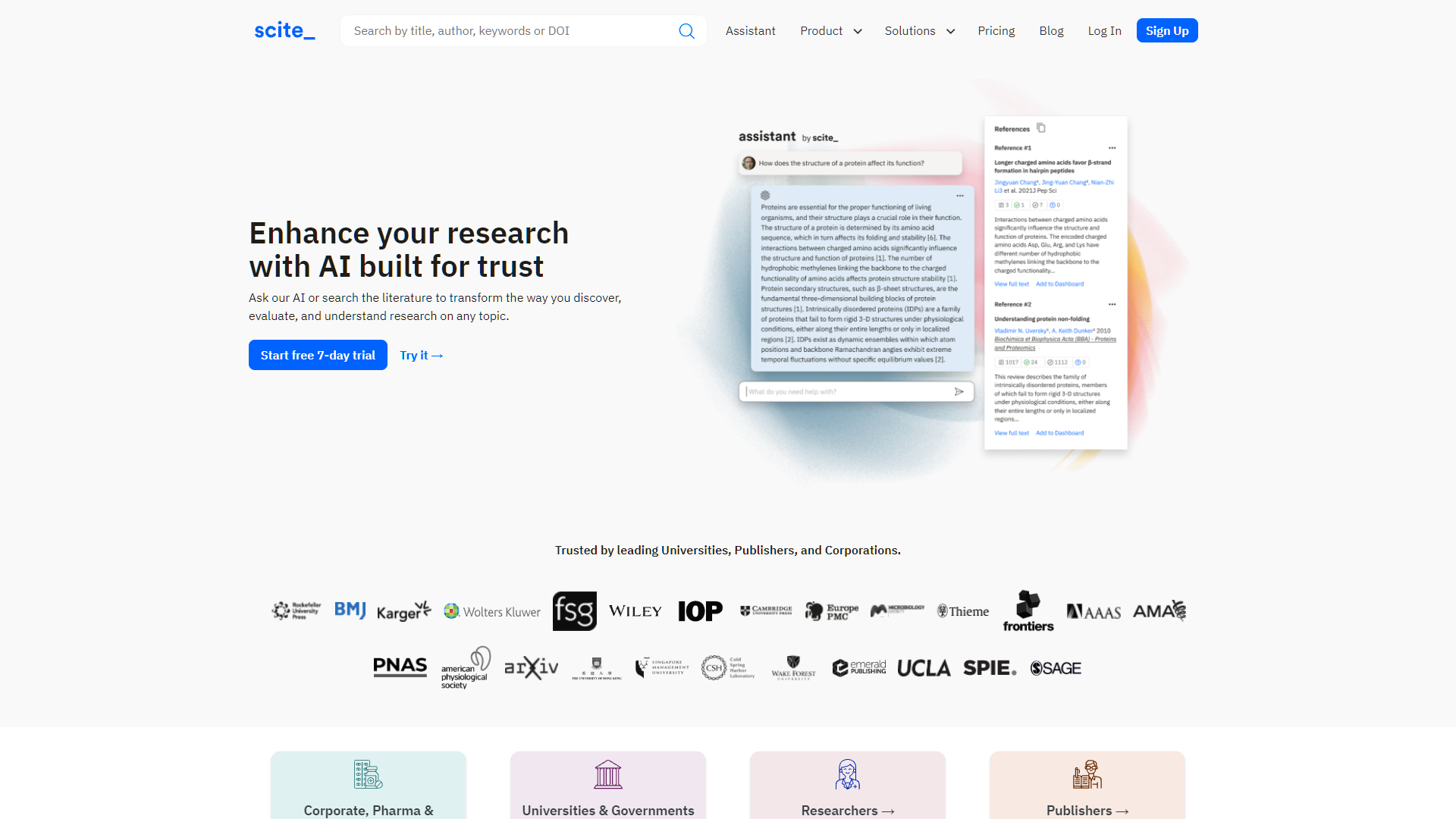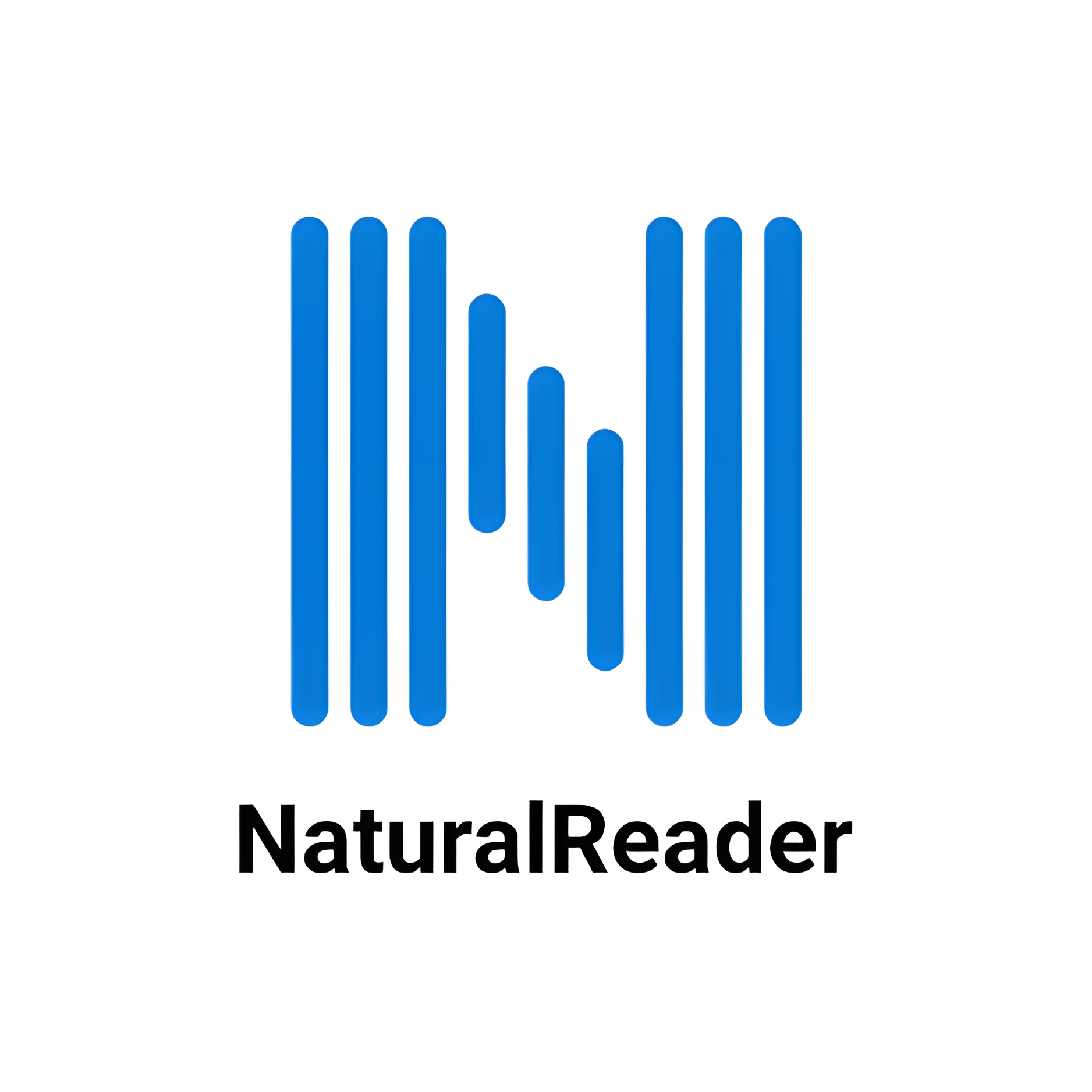Overview
Scite AI is an innovative AI-powered platform designed to revolutionize the way researchers, students, and academics engage with scientific literature. By leveraging advanced AI technology, Scite AI introduces Smart Citations, a unique feature that not only tracks how often a paper is cited but also analyzes the nature of these citations. Each citation is categorized as supporting, contrasting, or merely mentioning the original work, providing users with a nuanced understanding of the article's influence and relevance in the field.
The platform is equipped with a robust AI Assistant that adeptly handles research inquiries, offering answers that are substantiated with citations from credible academic sources. This feature is particularly useful for users looking to quickly gather evidence-based information without sifting through extensive databases manually.
Additionally, Scite AI offers tools such as citation chaining and comprehensive literature searches, which are essential for conducting detailed literature reviews. Users can also create personalized dashboards to monitor new citations and updates pertinent to their specific areas of interest. These features collectively make Scite AI an essential resource for anyone involved in academic research, providing a streamlined and effective approach to navigating and assessing scientific publications.
Key features
- Smart citations: Scite.ai categorizes citations into supporting, contrasting, or mentioning, enabling users to quickly gauge the impact and reliability of research articles.
- AI research assistant: The AI Assistant in Scite.ai answers research queries with precise references from credible academic sources, enhancing research efficiency.
- Citation chaining: This feature allows users to explore the lineage of research by following the trail of citations from one paper to another, uncovering valuable insights.
- Advanced literature search: Scite.ai provides robust search tools that help users find relevant academic articles quickly, using sophisticated filtering and sorting mechanisms.
- Research dashboards: Users can create personalized dashboards on Scite.ai to track new citations and updates, keeping them informed about the latest developments in their field.
 Pros
Pros
- Visual citation maps: Visual maps in Scite.ai display the citation relationships graphically, helping users understand the context and influence of research through visual data.
- Impact metrics: Scite.ai provides detailed metrics on citation impact, showing how often a paper is supported or contradicted, offering insights into its scientific credibility.
- Collaborative tools: Users can collaborate directly on Scite.ai, sharing findings and managing joint research projects efficiently within the platform.
- Real-time alerts: Scite.ai sends notifications when selected research papers receive new citations, ensuring users stay updated with real-time developments in their field.
- Integration capabilities: Scite.ai integrates seamlessly with other research tools and libraries, streamlining the research process and enhancing productivity.
 Cons
Cons
- Complex interface: The multitude of features and data presented by Scite.ai can overwhelm new users, making the initial learning curve steep and potentially discouraging.
- Dependence on citations: Scite.ai's effectiveness hinges on the availability and accuracy of citation data, which may not be comprehensive for all research areas.
- Limited scope updates: While Scite.ai updates frequently, some niche or emerging fields might not be as promptly or thoroughly covered in the updates.
- Over-reliance on AI: The AI Assistant's responses are limited to existing literature, potentially overlooking novel or interdisciplinary approaches not yet documented.
- Filtering complexity: The advanced filtering options, while powerful, can be complex to navigate effectively without prior training or experience.

















